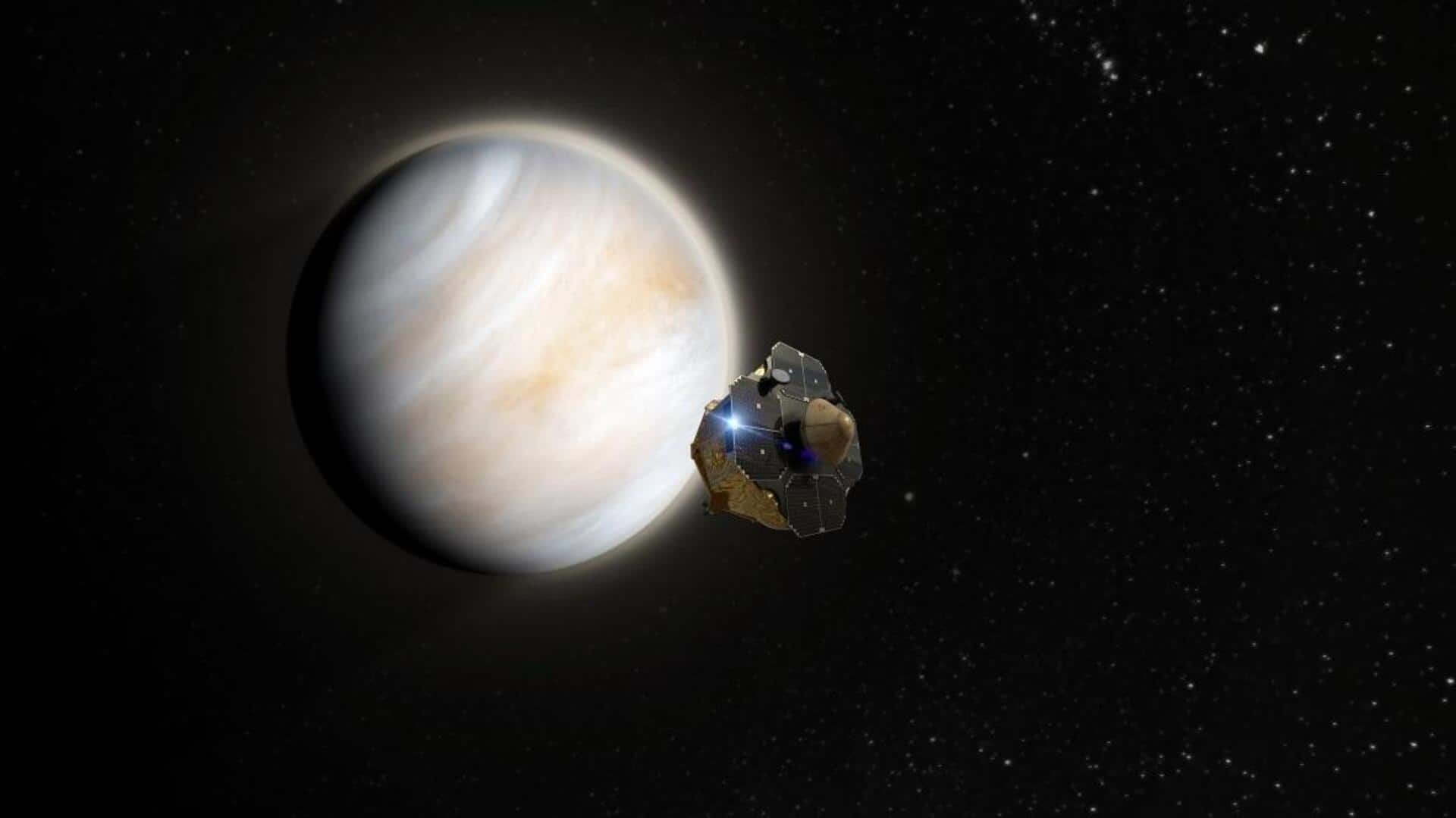
Rocket Lab to launch private Venus mission in late 2024
What's the story
US-based space firm Rocket Lab plans to launch its much-awaited Venus Life Finder mission on December 30, 2024, according to SpaceNews. As the name suggests, the upcoming mission's main goal is to explore whether our neighboring planet was ever habitable or not. The company will use its Electron rocket and Photon spacecraft to send a compact probe to around 38km above Venus, where the planet's atmospheric conditions are similar to that of Earth's.
Mission
The mission will look for organic compounds in Venus's atmosphere
Collaborating with MIT and other associates, Rocket Lab has been developing the Venus Life Finder mission. This privately financed endeavor is the first of several proposed by researchers at MIT to investigate the possibility of life in Venus's atmosphere. The mission will be carrying a single instrument, an autofluorescence nephelometer, to identify organic compounds in Venus's clouds. The mission was supposed to launch in May this year but was delayed, reported SpaceNews.
Details
The company is making significant progress toward launch
Christopher Mandy, lead system engineer for Rocket Lab's interplanetary missions reported that the company is making significant progress and obtaining "various components from external vendors." These include a thermal protection system for the probe from NASA's Ames Research Center and the main instrument from Droplet Measurement Technologies. Both parts are anticipated to arrive by year's end, which will be followed by the spacecraft's assembly, integration, and testing in 2024.
Timeline
Per schedule, the mission will reach Venus in 2025
An Electron rocket will ferry the 315kg spacecraft into low Earth orbit. It will then execute orbit-raising maneuvers culminating in a lunar flyby that will direct it toward Venus. As it descends through Venus's clouds, the probe will garner data for roughly five minutes. It will then transmit data—for about 20 minutes—as it reaches an altitude of about 22km, beyond which the probe can't withstand the conditions. If the current schedule holds, the spacecraft will reach Venus in May 2025.
Insights
The company will reuse hardware from the NASA-funded CAPSTONE project
The Venus probe serves primarily as a demonstration for Rocket Lab. The mission will utilize hardware and mission architecture from CAPSTONE, a NASA-funded lunar mission launched in June 2022. Mandy explained that by repurposing existing designs, the company aims to keep expenses low for this project. The Venus Life Finder mission's cost would likely fall within NASA's smallest category of planetary science missions, called SIMPLEx, which currently has a cost cap of $55 million.